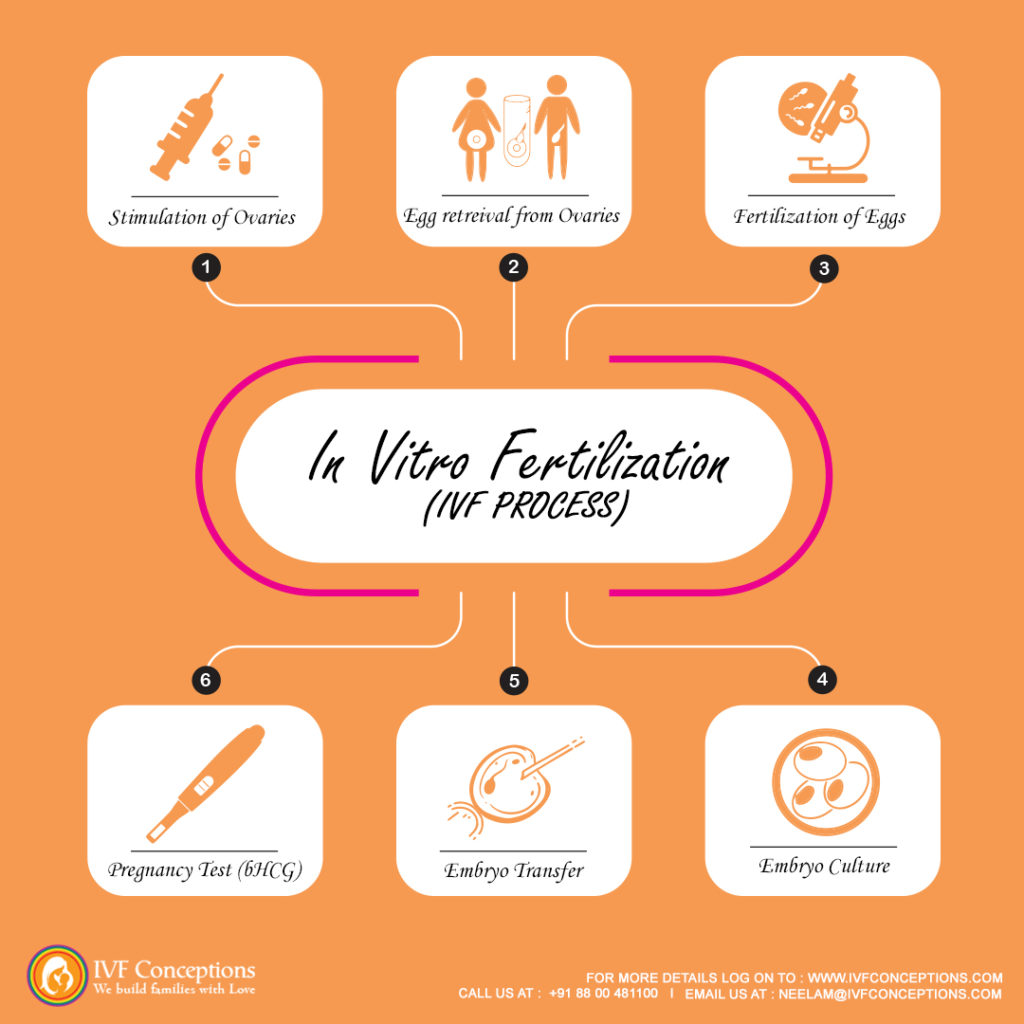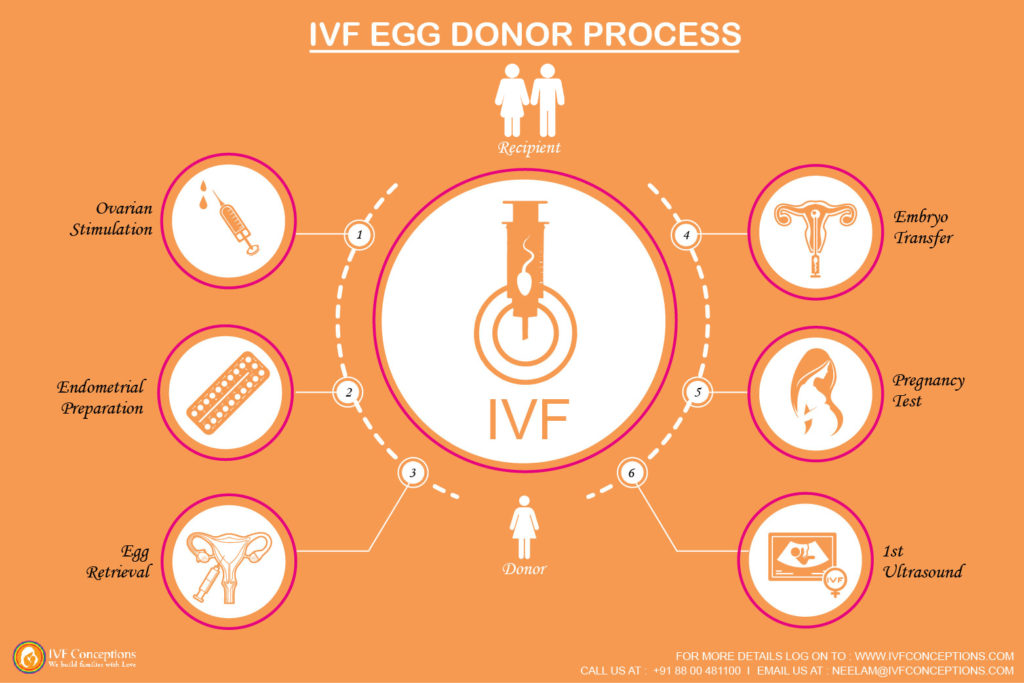FAQs related to the IVF procedure

IVF or In Vitro Fertilisation is a solution for numerous childless couples who are unable to conceive. In vitro fertilization (IVF) is a complex series of treatments that are used to help with pregnancy or avoid genetic problems and to assist with a child’s conception. In this article, we will touch upon the FAQs related to the IVF procedure.
IVF is the most efficient and invasive form of assisted technology for reproduction (ART). You can do the IVF Cycle with your own eggs and the sperm of your partner. Or else, IVF can include a known or unknown donor’s eggs, sperm, or embryos. In some cases, it may be possible to use a gestational carrier (also known as a surrogate mother)— a female with an embryo implanted in her womb.
Read more about this topic about FAQs related to the IVF procedure:
All about the IVF fertilization treatment
Everything about gestational surrogacy
IVF is a time-consuming, expensive, and intrusive fertility process. IVF may result in a pregnancy with more than one fetus (multiple pregnancies) if more than one embryo is transferred to your uterus. However, it should be known to the intended parents that IVF does not guarantee 100% success and more than one attempt may be needed for conception.
Your doctor will help you understand whether the method is right for you or not. Still, might have some FAQs in your mind which needed to be answered. So, here is the list of such FAQs and answers to them –
#1. What is the success rate of IVF?
IVF is a more successful procedure as compared to other fertility methods. According to the national statistics by Disease and Control, the average success rate of IVF gets reduced when women age. It is a little less during the early thirties and extremely less when the mother is around 40. For a specific induvial success rate, the fertility specialist will advise based on many factors.
The national averages (2016) show the following probabilities:
| Female age | Live birth rate per retrieval |
| < 35 | 41.3% |
| 35-37 | 31.7% |
| 38-40 | 21.6% |
| 41-42 | 10.6% |
| > 42 | 3.4% |
Source: https://www.sart.org/
There are other factors as well which will determine the fertility rate of the mother like her weight, height, the sperm count of the father, reproductive history, previous pregnancy records or miscarriages, etc. All of these factors also play an important role.
#2. Stages of IVF procedures involving donor eggs
Donor egg recipients are invited to select one or more candidates for egg donors that they find suitable. Upon availability and completion of all required screening, one of the selected egg donors will be provided to a donor egg recipient. The donor egg recipient always has the option to choose an egg donor.
Read more about:
After egg retrievals, the viable eggs produced in a single donation process are inseminated with sperms and all formed embryos belong to the recipient of the donor egg. It is strongly recommended that the remaining embryos be cryopreserved if more embryos are produced than the number needed for a safe transfer. Such cryopreserved embryos can be added later in the next attempts of childbirth irrespective of the quality of the completed fresh embryo transfer.
#3. Can I select the gender of my child?
Technically it is possible depending upon the country where it is legally allowed to do so. This is done through the clinics that operate in the Preimplantation Genetic Screening (PGS) field with advanced sophisticated laboratories in the world. PGS is a type of early embryo prenatal test prior to implantation in the uterus and initiation of pregnancy. PGS is important not only for gender equality but also for the prevention of genetic diseases.
#4. How to know whether you are a candidate for IVF or not?
When deciding whether a patient is eligible for IVF treatment, there are a number of factors involved. Before IVF, less invasive infertility treatments like IUI (intrauterine insemination) are done. If not successful, then an IVF cycle is planned. Appropriate applicants often include people who may experience:
- low sperm counts
- problems with the uterus or fallopian tubes
- Endometriosis
- Sperm unable to penetrate
- Sperms unable to survive in cervical mucus
- Ovulation disorders
- Other unexplained health or reproductive issues
#5. Are there any restrictions while undergoing the process of IVF?
Yes, there are a lot of restrictions regarding your lifestyle while undergoing IVF treatment. Some of them are –
Smoking: All partners must stop smoking at least three months before starting an IVF cycle and before initiating ovulation induction. It has been shown that smoking effects are toxic and detrimental to the eggs of a female.
Drinking: At the start of IVF treatment, alcohol should be avoided before one’s pregnancy test or, if pregnant, until the child’s birth.
Medications: If you are taking any prescription or over-the-counter medications, it is necessary to notify your doctor. Many medications may interfere with the prescribed medication for fertility or embryo transfer, and others may not be safe to take before surgery.
Vigorous exercise: During ovarian stimulation and until the effects of one’s pregnancy are established, intense physical exercises such as weightlifting, running and aerobics are forbidden.
Supplements: One should not take herbal supplements during the IVF procedure.
#6. What happens when I become pregnant/ will not become pregnant?
Once a pregnancy is confirmed, for further blood testing, you will see the fertility doctor and finally an ultrasound to ensure that the pregnancy is progressing smoothly. Once the heartbeat of the fetus has been confirmed, for the rest of your pregnancy you will be referred to an obstetrician.
If not pregnant, patients are asked to wait for one or two full menstrual cycles before resuming another IVF cycle to try again. Any additional tests that might prolong subsequent IVF cycles may be required.
#7. What are the side effects associated with IVF?
As IVF involves the use of medication, these fertility medications can result in headaches, abdominal pain, hot flashes, mood swings, and bloating. In rare cases, it may result in OHSS (Ovarian Hyper Stimulus Syndrome) which can produce symptoms such as – nausea, vomiting, faint feeling, shortness of breath, severe stomach pain, weight gain in a small period of time, and bloating.
The potential side effects of IVF include the following –
- Passing a small amount of cleared or blood fluid after the procedure is performed.
- Breast tenderness
- Mild cramping
- Mild bloating
- Constipation
Despite all these side effects, IVF is a miracle procedure to opt for because the feeling of holding your baby in your arms is a wonderful feeling compared to these side effects. One should consult the doctor before going for an IVF procedure and know whether the procedure is right for you.
If you’d like to learn more about IVF, Egg Donation, or surrogacy services globally, check out the rest of our website at IVF Conceptions. We offer legally secure and affordable surrogacy services to build families with love.


